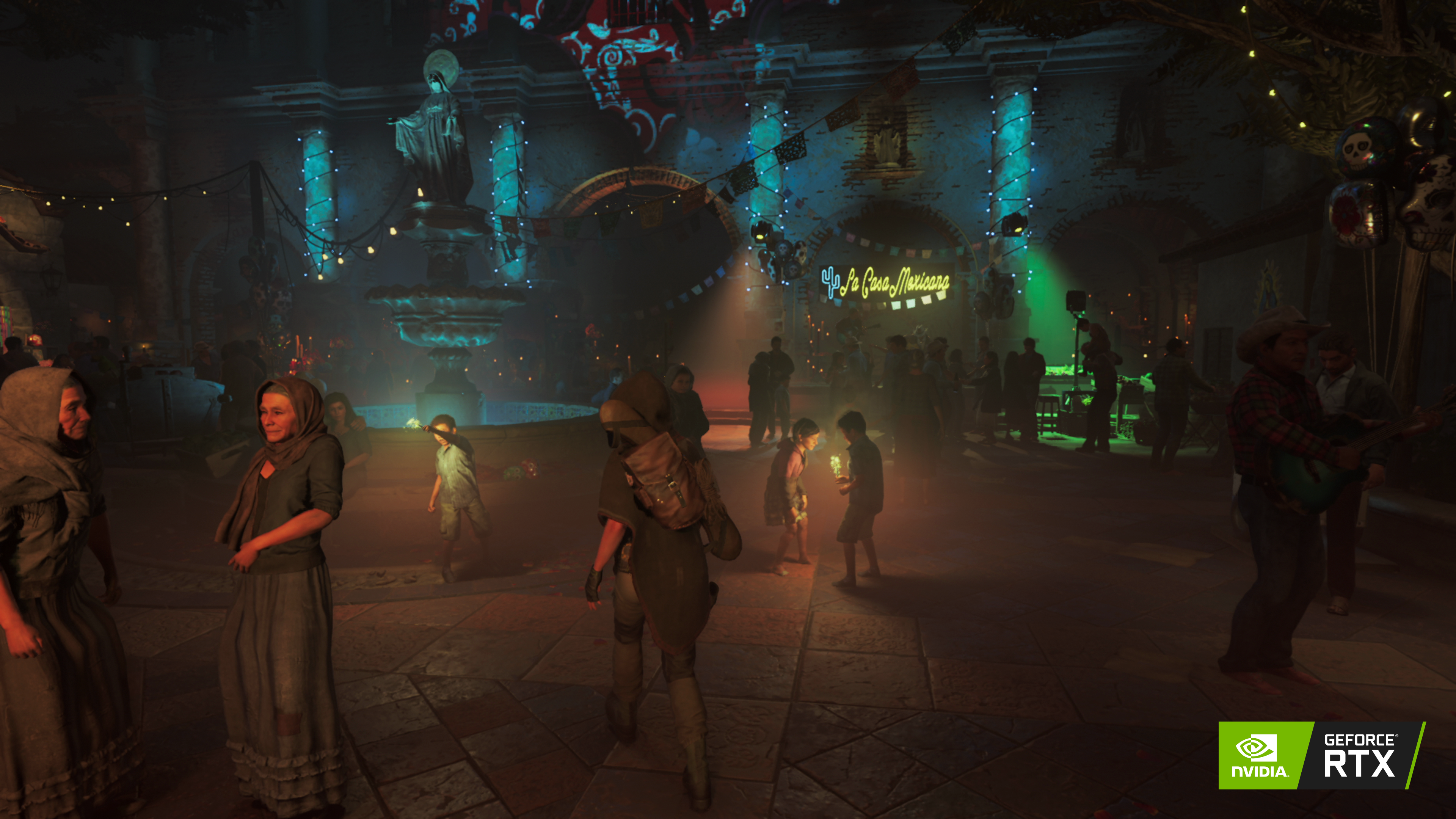Nvidia 5000 series: rumors, possible GPU specs, and everything we know
Everything we know about the Nvidia 5000 series of RTX GPUs

Sign up for breaking news, reviews, opinion, top tech deals, and more.
You are now subscribed
Your newsletter sign-up was successful
Rumors about the upcoming Nvidia 5000 series GPUs have been building momentum for a good while now, and as the months of 2024 roll by, we're hearing more and more as the rumor mill churns faster.
Current Nvidia Lovelace RTX graphics cards have delivered mixed performance results; while the enthusiast and premium mid-range models have generally excelled, high prices have prevented the more expensive cards from reaching many gamers.
So it's not surprising there's a great deal of excitement, as well as caution, regarding what to expect from Nvidia's best graphics cards of the Blackwell generation, next-gen GPUs (headed up by the RTX 5090) that may be on the horizon for the end of the year - or maybe not.
In this article, we'll round up all the key release date rumors, and other news that continues to swirl ahead of the Nvidia 5000 series announcement, updating you with all the fresh details as we hear them.
Nvidia 5000 Series: Cut to the chase
- What is it? Nvidia's rumored next generation of RTX graphics cards
- How much does it cost? Unknown at this time, but will likely scale similarly to Nvidia Lovelace GPUs in price
- When can I get it? The earliest we expect to see the Nvidia RTX 5000 series would be late 2024 or early 2025
Nvidia 5000 series: Latest news
- Nvidia RTX 5080 and 5090 may not turn up this year after all – next-gen GPUs might be launched at CES 2025
- Nvidia’s RTX 5090 now rumored to have superfast clock speeds – as well as being super-slim – could this GPU be too good to be true?
- Nvidia RTX 5000 specs are leaked, and PC gamers are already unhappy with the way next-gen GPUs look to be shaping up
Load more of the latest Nvidia RTX 5000 series news...
- Nvidia could have big plans for powering up RTX 5000 GPUs (literally) – will your power supply be good enough?
- Nvidia RTX 5000 laptop GPU spec leak disappoints some – but it’s not all bad news
- Nvidia RTX 5090 GPU could have less VRAM than previously rumored – but that might be good news for gamers
- If you’re not excited about Nvidia’s RTX 5090 and 5080 yet, you will be after seeing Micron’s new VRAM that’s rumored for these GPUs
- Nvidia RTX 5090 rumors continue to suggest this graphics card will not just be powerful, but also miraculously slim
- Nvidia RTX 5090 could pack 32GB of VRAM and be a slimmer graphics card than the RTX 4090
- Nvidia RTX 5080 could still turn up later in 2024 – and next-gen GPU might have plenty of stock on shelves too
- Nvidia could use massive 600W-capable cooler for RTX 5090 – but don't panic about flagship GPU being a power hog
- Nvidia’s next-gen rumors bring good and bad news for gamers: RTX 5080 may not make 2024, but RTX 5090 and Blackwell laptop GPUs look promising
- Nvidia RTX 5090 and 5080 GPUs could be here in less than half a year – but scalpers might ruin this early launch
- Nvidia's RTX 5080 and 5090 GPUs might arrive later in 2024 — and it's honestly way too soon
- New leaks suggest the Nvidia RTX 5080 will offer better ray tracing and pricing than 4080
- The Nvidia RTX 5090 is rumored to be nearly twice as fast as RTX 4090, so we should just call it the Titan RTX at this point
- Nvidia 5000 series GPUs might use multi-chiplet design—and it could help get Nvidia back on the performance track
- Nvidia could be up to something odd with next-gen Blackwell GPUs – and AMD might take advantage
- Nvidia's RTX 5000 GPUs are a confusing proposition for gamers like me
Nvidia 5000 series: Release date
We obviously don't know for sure when Nvidia will release its next generation of GPUs, but there is some educated speculation that we can make at this point based on past practice and rumors that have made their way into the public conversation.
For one, Nvidia tends to follow a 18- to 24-month release cadence for its graphics cards, and with the easing of the global chip shortage, we don't expect to see any delays that push things back from this schedule.
That would put the Nvidia 5000 series release somewhere toward the end of 2024 or to early 2025 at the latest. In the past, the rumor mill has tended to gravitate towards a late 2024 release, but more recent speculation is starting to suggest an early 2025 launch (likely at CES). Whatever the case, rumors also point to a pair of initial Blackwell graphics cards - the RTX 5090 and RTX 5080 (although the latter may arrive just before the flagship).
Sign up for breaking news, reviews, opinion, top tech deals, and more.

Nvidia RTX 5000 series: Specs
The Nvidia 5000 series RTX GPUs will be based on Nvidia's Blackwell architecture.
According to a leak on Chinese hardware forum Chiphell, seconded by known online leaker Kopite7kimi, Nvidia's next-gen GPU series will undergo something of a numbering shakeup. The supposed GPU variants, which will sit at the heart of both Nvidia graphics cards and the best gaming laptops running next-gen Nvidia GPUs, will include:
- GB202: likely in the Nvidia RTX 5090 and Nvidia RTX 5090 Ti
- GB203: likely in the Nvidia RTX 5080 and Nvidia RTX 5080 Ti, though possibly in the Nvidia RTX 5070 Ti as well.
- GB205: Likely in the Nvidia RTX 5070 and RTX 5060 Ti, and possibly in the Nvidia RTX 5070 Ti
- GB206: Likely in the Nvidia RTX 5060 and possibly the Nvidia RTX 5060 Ti
- GB207: Likely reserved for the Nvidia RTX 5050 and Nvidia RTX 5050 Ti
In the past, we've heard rumors that Nvidia would finally be switching some of its Blackwell GPUs over to a multi-chiplet module (MCM) design, following in the footsteps of AMD and Intel. Whether this will include the Nvidia 5000 series GPUs isn't clear, however, since the rumors only specified the GB100 GPU, which is a commercial-grade chip for servers, data centers, and industrial use.
At this point, it seems unlikely for GeForce cards, but still - an MCM Nvidia GPU could provide a big boost to performance if done properly, and given that archrival AMD is already using MCMs in its GPUs, Nvidia can't afford to get left behind here.
We've also seen some purported specs for an RTX 5090 from Chiphell forum user Panzerlied, a fairly reliable hardware leaker. According to a now-deleted post, the RTX 5090 will boast some impressive spec upgrades over the RTX 4090:
| Spec | RTX 4090 | RTX 5090 |
|---|---|---|
| Streaming Multiprocessors | 128 | 192 |
| CUDA Cores | 16,384 | 24,576 |
| Ray Tracing Cores | 128 | 192 |
| Tensor Cores | 512 | 768 |
| Boost Clock | 2.52 GHz | 2.9 GHz |
| L2 Cache | 72MB | 128MB |
| Memory Bandwidth | 1,008 GB/s | 1,532 GB/s |
If these specs pan out, this should give the RTX 5090 an absolutely massive gen-on-gen boost, with the same post that detailed the specs claiming that the RTX 5090's performance was 1.7 times faster than the RTX 4090, which is downright gobsmacking.
Other rumors have indicated a slightly lesser uplift for the RTX 5090, to the tune of a 50% or 60% boost, but let's face it - that would still represent a massive upgrade.
We're also expecting a VRAM loadout of 28GB (with a 448-bit memory bus), in case you were in any doubt of what a monster GPU the Blackwell flagship might be.
With a potential release nearing, we're betting we'll hear more spec rumors before long, and we'll bring you all the latest updates as they happen.

John (He/Him) is the Components Editor here at TechRadar and he is also a programmer, gamer, activist, and Brooklyn College alum currently living in Brooklyn, NY.
Named by the CTA as a CES 2020 Media Trailblazer for his science and technology reporting, John specializes in all areas of computer science, including industry news, hardware reviews, PC gaming, as well as general science writing and the social impact of the tech industry.
You can find him online on Bluesky @johnloeffler.bsky.social
- Christian GuytonEditor, Computing